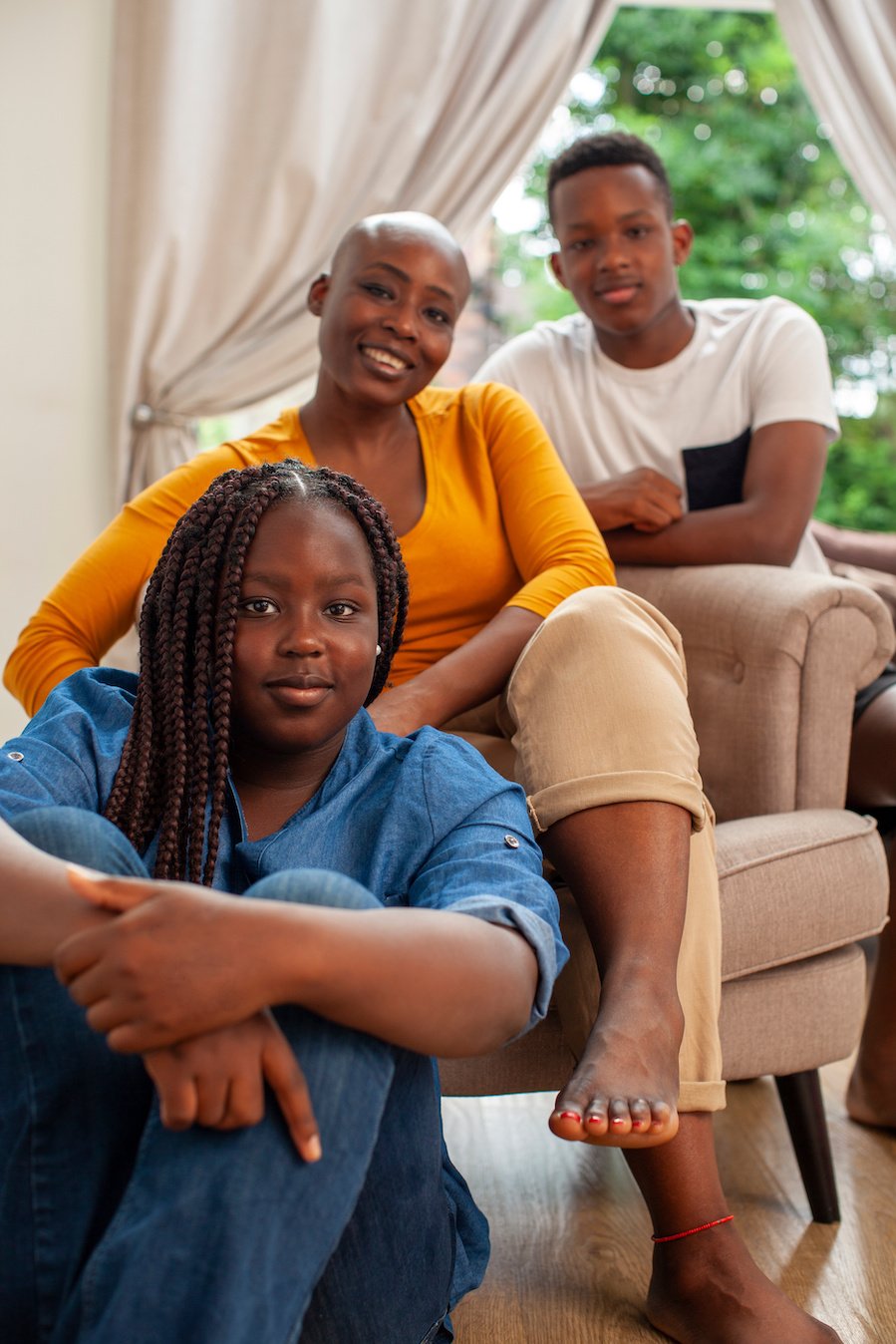Functional Family Therapy (FFT)
Functional Family Therapy (FFT) is an effective, short-term evidence-based family counseling service designed for 11-to-18-year-old youth who are at risk or have been referred for behavioral or emotional problems. FFT works with a young person’s entire family and extrafamilial influences to facilitate positive growth and development. Our effectiveness stems from the idea that families are not identical—they all have a unique set of circumstances, so our treatment plans are individualized to fit the specific needs of youth and their families.

Key Components of FFT
FFT is a phasic program with steps, which build upon each other. These phases consist of:
- I: Engagement
- I: Engagement
- II: Motivation
- III: Relational Assessment
- IV: Behavior Change
- V: Generalization
In the Engagement phase, therapists work hard to demonstrate a sincere desire to listen, help, respect, and "match" family members in a way that is sensitive and respectful of individual, family and cultural beliefs, perspectives, and values.
- Goals: Enhancing family members' perceptions of therapist responsiveness and credibility
- Focus: Immediate responsiveness to family needs and maintaining a strength-based relational focus
- Activities included: High availability, telephone outreach, contact with as many family members as possible, "matching," and a respectful attitude
In the Motivation stage, therapists work to change the meaning of family relationships by emphasizing possible hopeful alternatives, maintaining a nonjudgmental approach, and conveying acceptance and sensitivity to diversity.
- Goals: Creating a positive motivational context by decreasing family hostility, conflict, and blame while increasing hope and building balanced alliances with family members
- Focus: A respect- and strength-based process that is focused on highlighting dignity and hope for positive change in relationships
- Activities included: Interruption of negative interaction patterns, pointing process, sequencing, and reframing of the themes by validating the negative impact of behavior while introducing possible benign/ noble (but misguided) motives for behavior
In the Relational Assessment phase, therapists gather an understanding of the motives behind family members’ behaviors. This understanding sets the stage for planning in the following two phases: Behavior Change and Generalization, where all interventions are matched to the families' relational functions.
- Goals: Analyzing the patterns of interaction within the family to understand the relational "functions"—or the interpersonal motives behind individual family members' behaviors
- Focus: Intrafamilial and extrafamilial contexts and capacities (e.g., values, attributions, functions, interaction patterns, sources of resistance, resources, and limitations)
- Activities included: Observation, questioning, inferences regarding the functions of negative behaviors, and switching from an individual problem focus to a relational perspective
The Behavior Change phase includes formal strategies that specifically address relevant family processes (e.g., conflict resolution), individual skills (e.g., emotional dysregulation), or clinical domains (such as depression and substance use). Techniques and strategies often include evidence-based family- and cognitive-behavioral strategies for addressing family functioning and referral problems.
- Goals: Reducing or eliminate adverse behaviors by improving family functioning and individual skill development
- Focus: Addressing specific referral problems and risk and protective factors within individuals and the family system
- Activities included: Modeling and promoting positive behavior, providing directives and information, and developing creative programs to change behavior
In the Generalization phase, therapists extend positive family functioning into new situations or systems, plan for relapse prevention, and incorporate community systems into the treatment process (such as teachers and Probation Officers).
- Goals: Extending the improvements made during the Behavior Change phase into multiple areas and planning for future challenges
- Focus: Building sustainable relationships between family members and multiple community systems
- Activities included: Collaborating with the community, developing and maintaining contacts, initiating clinical linkages, creating relapse prevention plans, and helping the family develop independence
Key Features of FFT
Functional Family Therapy is:

Proven to Reduce
Adverse Behaviors
Over 50+ studies conducted on the family counseling model over the past four decades point to consistently positive results.

Successful
Long-Term
Although treatment itself is short-term, FFT is proven to reduce delinquency and other adverse behaviors as far as 18 months after case closure.

Backed by the
FFPSA
The Family First Prevention Services Act (FFPSA) allows states to use federal funds on select family preservation programs. FFT is a well-supported program under the FFPSA.
